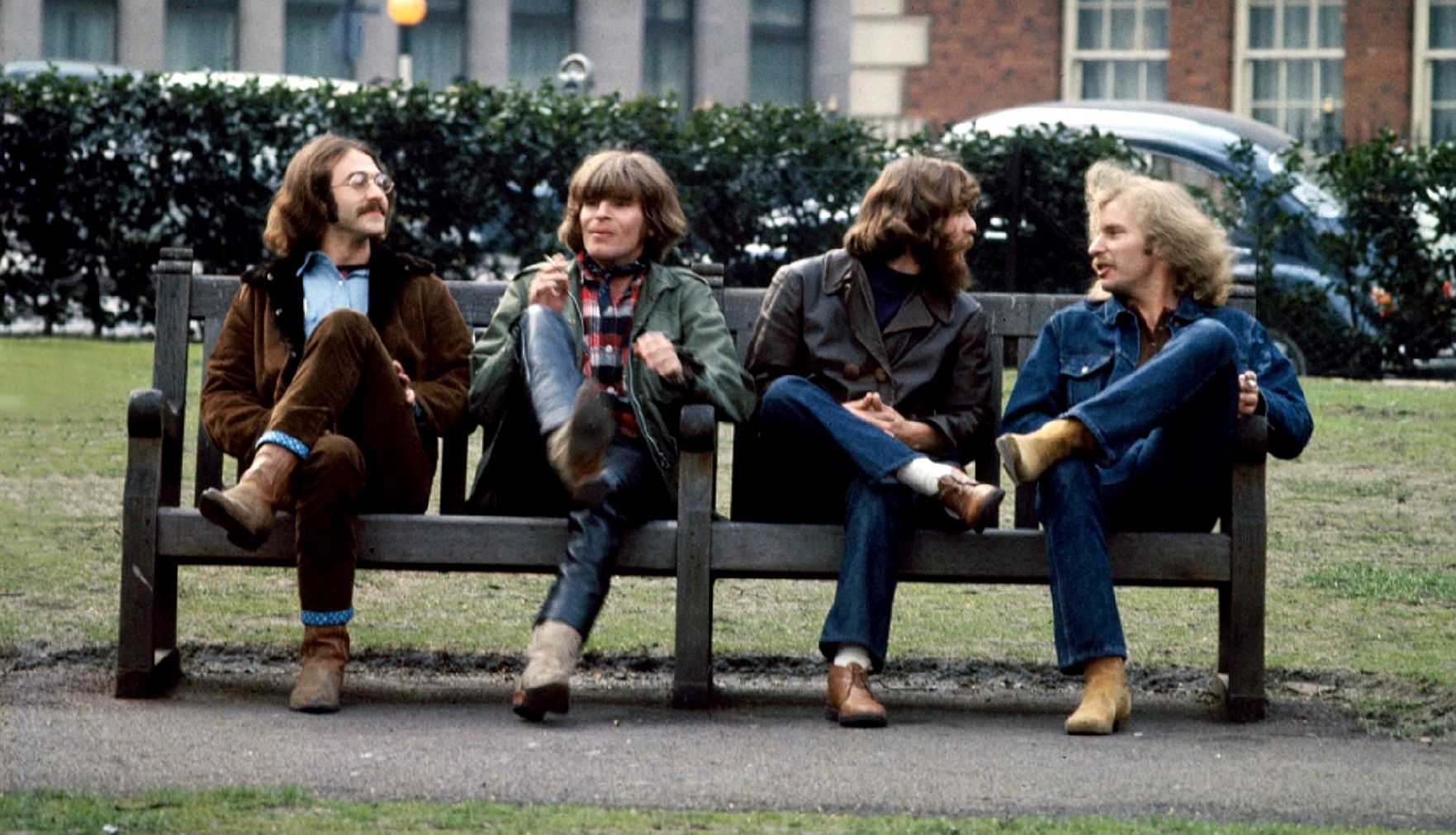
A quiet cry of connection from the heart, “Wrote a Song for Everyone” speaks to how music can reach multitudes—even when words fail between two souls.
“Wrote a Song for Everyone” found its home on Creedence Clearwater Revival’s landmark album Green River, released on August 3, 1969. The album itself became the group’s first No. 1 on the Billboard charts, cementing CCR as one of the defining American rock bands of their generation. While the record carried hits like “Bad Moon Rising” and “Green River” to widespread acclaim, this quieter track stood apart, not because of chart performance—it was never released as a single—but because of its haunting sincerity. For many long-time listeners, it has since become a deeply personal favorite, a hidden jewel in a catalog otherwise defined by swamp-rock grit and radio-ready anthems.
Between the Public and the Private
At the heart of “Wrote a Song for Everyone” is John Fogerty’s own struggle with communication. He once admitted that the song came from his inability to speak openly with his wife at the time. There is a striking paradox here: a man whose songs were reaching millions of listeners across America found himself unable to hold a simple conversation with the person closest to him. The refrain—“Wrote a song for everyone, and I couldn’t even talk to you”—rings like a confession, simple in language but devastating in implication. It reminds us of a truth older listeners know all too well: sometimes the hardest words to speak are not those meant for crowds, but those whispered across a kitchen table.
And yet, the song does not stay confined to the personal. Fogerty weaves imagery of unrest and disconnection that reflected the turbulence of the late ’60s: lines about failed communication, broken trust, and even the threat of violence. “Richmond ’bout to blow up, communication failed” speaks to social fractures and government mistrust. He draws a line between the grand failures of society and the quiet failures between two people. In doing so, the song resonates across scales—an intimate lament that also feels like a national elegy.
A Different Pace in the CCR Catalog
Musically, “Wrote a Song for Everyone” is unlike the swampy, fast-paced rock that made CCR famous. Where songs like “Travelin’ Band” or “Fortunate Son” explode with energy, this track settles into a slow, contemplative groove. It is almost hymn-like in its restraint, carried by Fogerty’s unmistakable voice and the band’s steady instrumentation. The deliberate tempo gives every word weight, every phrase space to breathe.
For listeners who grew up with the vinyl era, there’s a particular memory attached to songs like this: the gentle crackle of the record player, the slow unfolding of a song that asked you not to dance, but to sit still and listen. “Wrote a Song for Everyone” was not made for the radio or the jukebox—it was made for the late hours, when reflection replaces celebration.
Critics at the time recognized this tonal shift. Rolling Stone later described it as one of Fogerty’s most haunting works, a song that carried more depth than some of the band’s more popular hits. Today, when fans revisit Green River, many find themselves drawn less to the obvious singles and more to this quiet track, which feels almost prophetic in its emotional honesty.
Resonance Across Generations
For older listeners revisiting this song, it may stir memories of times when music became the only way to express what was left unsaid. Perhaps it recalls a letter never mailed, a conversation never had, a bridge between two hearts that was never fully crossed. There is comfort in realizing that even a songwriter of Fogerty’s stature faced those same struggles.
And yet, beyond the personal, the song echoes the collective mood of 1969. America was in turmoil—Vietnam, civil rights unrest, generational divides. Artists often became the voices of their age, but here Fogerty turns the lens inward, exposing his own vulnerability. In doing so, he captured the universal human experience: the sense that we may reach the world, yet fail the one standing right beside us.
That is why the song has endured. It isn’t tethered to the specific politics of its time, though they hover in the background. Instead, it speaks to something older and deeper: the loneliness of being misunderstood, and the irony of finding your clearest voice only through art.
A Song That Still Speaks
Though it never climbed the charts, “Wrote a Song for Everyone” holds a special place in CCR’s catalog because it reveals a softer, more vulnerable side of the band. It invites listeners into Fogerty’s private doubts and turns them into something universal. For those of us reflecting back on decades gone by, it is a reminder of the times we spoke most clearly not with our voices, but through a song, a letter, or a memory we hoped someone would understand.
It is fitting, then, that the song’s legacy endures not as a hit, but as a touchstone. Its power lies not in ubiquity, but in intimacy. Many can hum “Bad Moon Rising,” but those who have lived with “Wrote a Song for Everyone” know it differently: as a mirror, a confession, and a companion for quiet hours.
More than fifty years later, it remains a work that whispers rather than shouts, a testament to music’s power to say what the heart cannot. And perhaps that is the truest gift of Creedence Clearwater Revival’s timeless ballad: in admitting the failure to speak, it has spoken for us all..